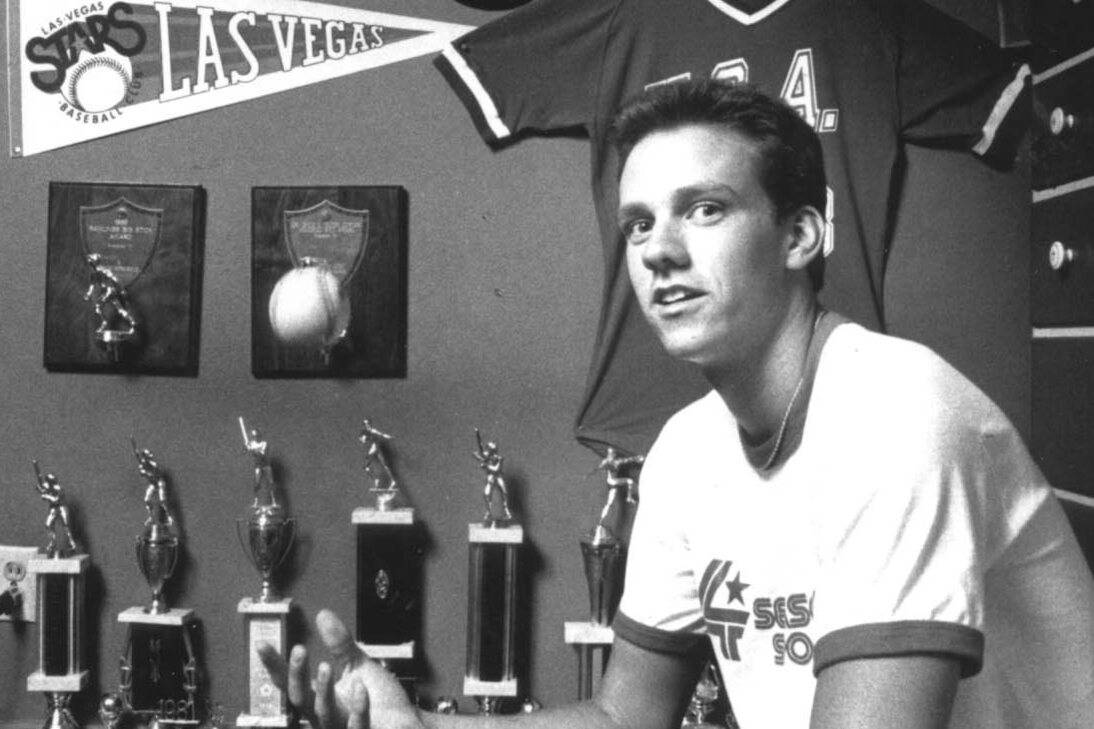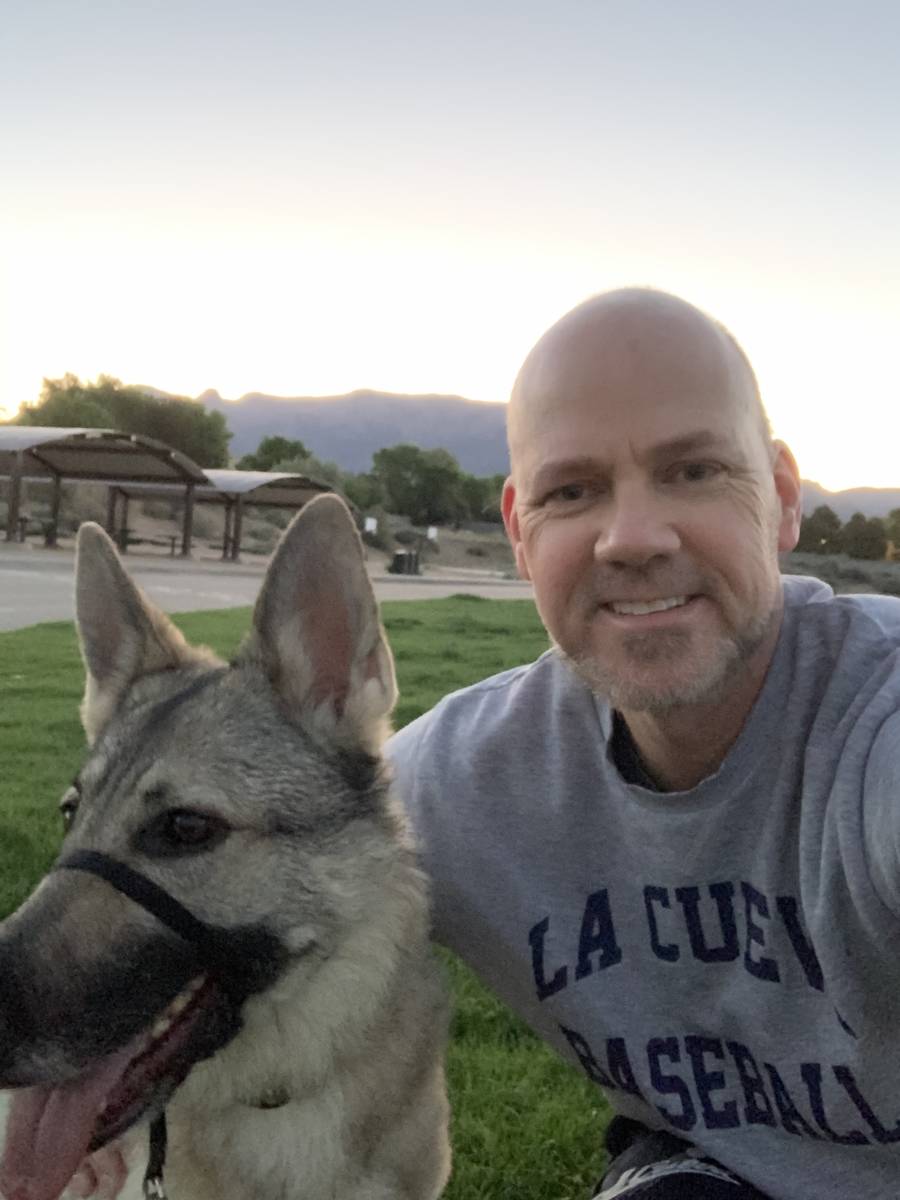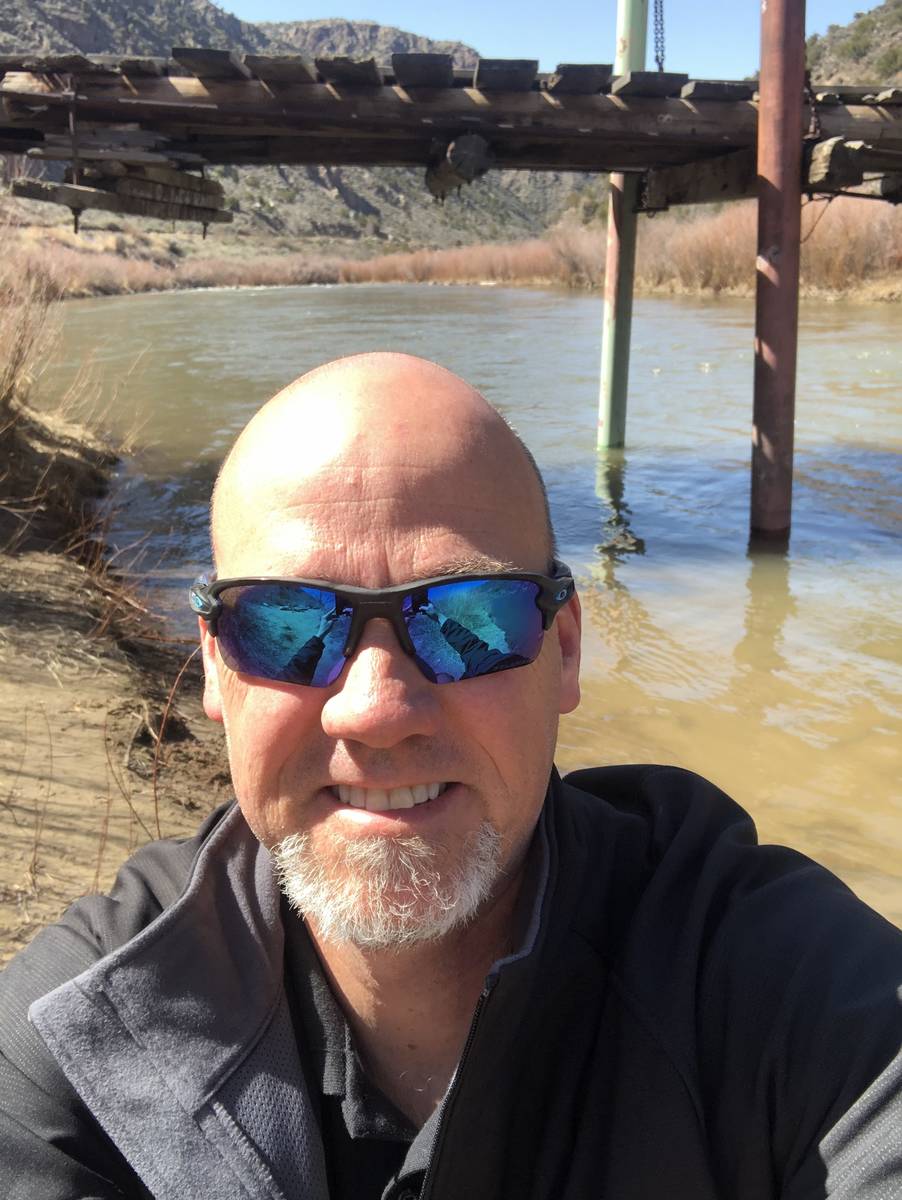Ex-Valley pitching phenom Dan Opperman overcomes adversity
Editor’s note: The Review-Journal’s “Where Are They Now” series catches up with athletes who played high school, college or professional sports in the Las Vegas Valley. Stories will run at least once a week.
Dan Opperman was bitter and frustrated and couldn’t understand why a series of elbow injuries had derailed and ultimately ended his once-promising baseball career in 1993.
“I was a miserable person,” he said. “I was angry at being injured. It took me a good year and a half, two years, to finally one day wake up and look outside and say, ‘Well, damn, the sun keeps coming up. I guess I should probably move on.’ It was at that point that life became enjoyable again.”
Opperman credited his wife, Lisa, for helping him find a new purpose. They met while Opperman was playing for the Triple-A Albuquerque Dukes, and he decided to make the New Mexico city his home. Lisa was an office administrator for a local law firm and sparked an interest in Opperman in pursuing a legal career.
The 51-year-old has been the chief legal officer for the New Mexico Finance Authority for almost 10 years. The authority’s chief function is funding public projects throughout the state.
Headed for stardom?
The benefit of hindsight gives Opperman an appreciation of what he has gone through. In addition to a successful law career with a side job helping coach at a New Mexico prep baseball power, Dan and Lisa Opperman have been married almost 27 years and raised two adult daughters.
Gaby received her undergraduate and master’s degrees at New Mexico and soon will begin her career as the head athletic trainer at a South Carolina high school. Abby will be a sophomore soccer player at Colorado College, which competes in the Mountain West in the sport.
When Opperman was a teenage pitching whiz at Valley High School in the 1980s, he pictured a long, success major league career. So did the Los Angeles Dodgers, who picked him eighth overall in the 1987 draft.
But signs of trouble hit Opperman in the state playoffs of his senior season. He felt a pop in his right pitching elbow, but didn’t think much of it. After reporting to the Dodgers’ rookie team in Great Falls, Montana, he felt the pop again as he was playing catch.
This time, he knew it was serious.
Opperman would be hounded by elbow trouble even as he worked his way up to Triple A in 1991, undergoing three surgeries, including two Tommy John procedures. He pitched more than 100 innings just once, in 1990 with Double-A San Antonio, going 12-8 with a 3.41 ERA to earn the promotion to Triple A the following season.
His career ended in spring training of 1993 when the elbow popped yet again. Opperman sat in famed Dr. Frank Jobe’s office and was told he should consider getting a college education.
A new direction
Opperman found himself in a deep funk after his baseball career ended, but Lisa helped pull him out of it.
He had to think what he would do next and considered a career in medicine given his own health experiences. He had even learned to read his X-rays.
But he learned in college he wasn’t cut out for medicine and liked what he had learned about law from Lisa’s work. After getting his undergraduate degree at New Mexico, Opperman was accepted into its law school.
During orientation, however, a professor told Opperman that athletes usually don’t do well in law school and that he should consider another option. Opperman was stunned, and that comment stuck with him as he graduated from law school in 2001 and put together a successful career.
“As an overly competitive person anyway, that (comment) definitely put a little fire in me,” Opperman said. “It wasn’t going to sway me in the first place, but it definitely got under my skin. I use that for motivation.”
His specialty is business law, and he worked his way up to be the lead counsel at the New Mexico Department of Transportation in 2009 and then his current position at the Finance Authority in 2010. Opperman said the authority has issued 1,656 loans totaling $3.9 billion since 1992. Many are low-interest loans — about 90 percent of the money distributed is from grants — for communities called Colonias near the Mexico border that don’t have basics such as running water and sewage systems.
It takes him almost an hour to drive from his Albuquerque home to the Santa Fe offices, and the commute is even more difficult when Opperman has served as pitching coach at La Cueva High School, which is near his home.
He has coached there three times, most recently in 2019. And every once in a while in batting practice, he would let the players know he still had it.
Opperman knows what it’s like to just fall short of his baseball dream, and last year he received a health scare when it was discovered he had prostate cancer. But it was caught early, and he has recovered.
“One of the hardest things to do is to walk away from the game,” Opperman said. “I think it’s a little different when you are forced to retire based on injury as opposed to sometimes you’re just not good enough. This was difficult. That goes to that period of time when you are trying to put things in perspective of what could I be doing now? But I don’t actually look at it that way. I do believe with all of my heart that I would not have the life that I have today had those injuries not happened.”
Contact reporter Mark Anderson at manderson@reviewjournal.com. Follow @markanderson65 on Twitter.
Dan Opperman file
Age: 51
High school: Valley
MLB draft: Taken eighth overall in 1987 by the Los Angeles Dodgers
Minor league career: 1989-92, the final two years at Triple-A Albuquerque, N.M.
Current position: Chief legal officer for the New Mexico Finance Authority
Residence: Albuquerque
Family: Wife Lisa; daughters Gaby and Abby

























